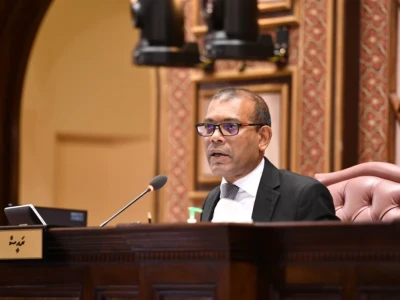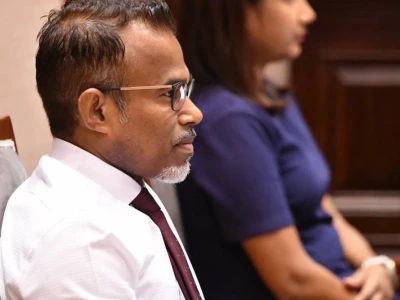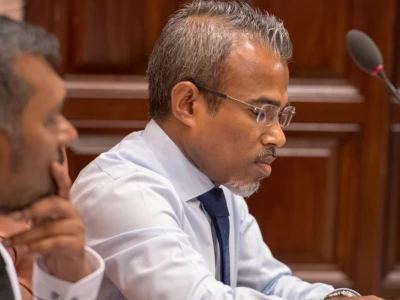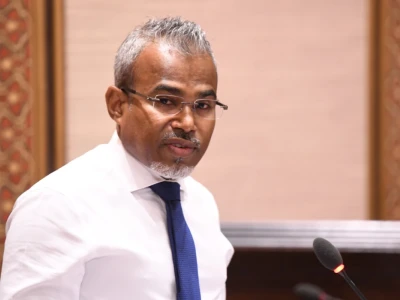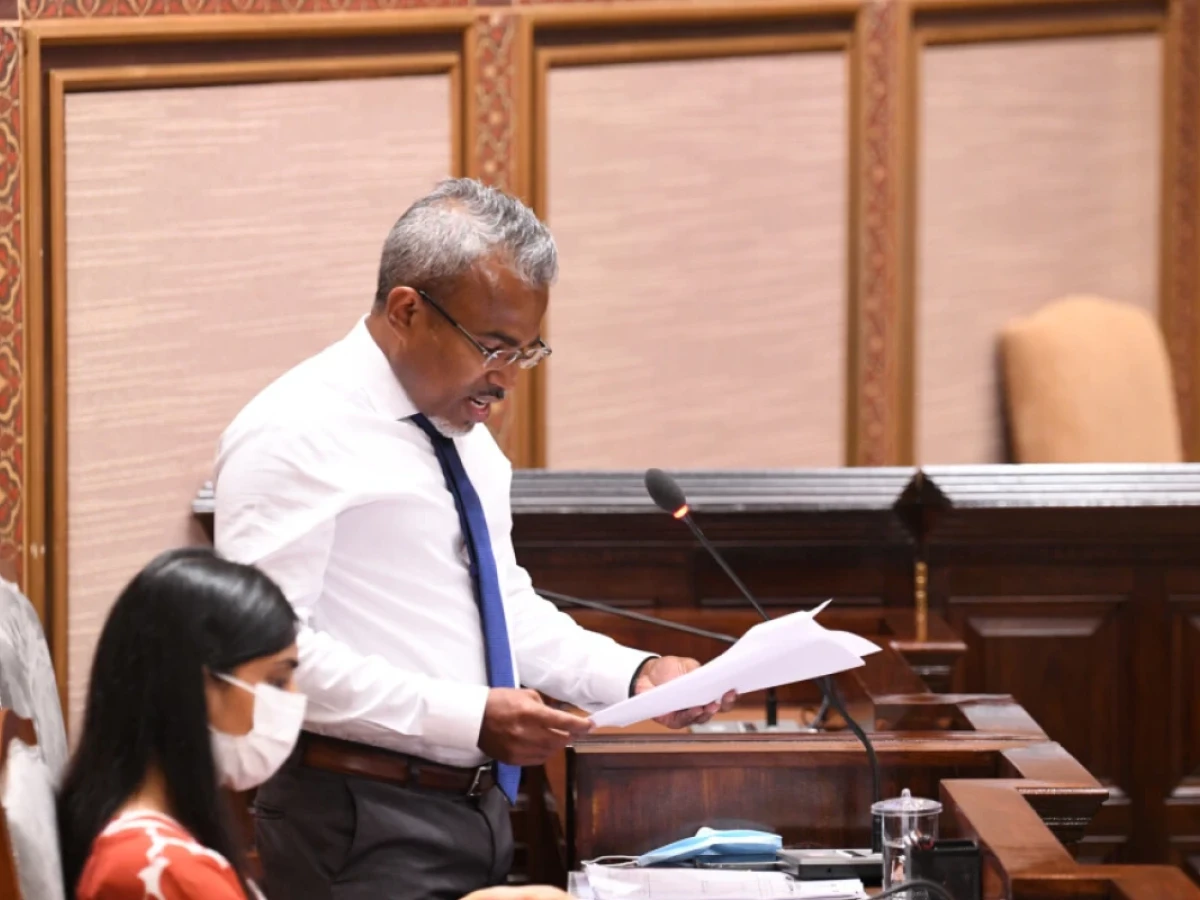
MPs debate AG's confidence motion despite procedural dispute delay
When the parliament resumed, Nasheed wanted the no-confidence motion to be adjourned and the remaining work on the agenda began.
Top Stories
-
Yameen pledges no political demands if Zariyand elected mayor
-
Nasheed urges Mauritius dialogue but firm stance on Chagos
-
MP Shameez criticises political appointees over election campaign
-
Police seek prosecution of MDP MP, activists over October protest
-
Met forecasts lower rainfall across Maldives in March
By
Mariyam Umna Ismail
A debate has been held among the members of the parliament on how the Attorney General (AG) should respond to the no-confidence motion against him even after the speaker decided to adjourn the vote on the motion due to differences arising out of his failure to appear before the parliament to respond.
When the matter was listed for Wednesday’s meeting, the AG decided not to appear before the parliament and file a written reply. As the general committee of the parliament failed to take a decision on how the AG would be made answerable without being present in the parliament, the speaker adjourned the sitting for discussions among the political leaders, saying it had created a procedural problem.
-
After the talks, none of the parties, except MDP, agreed to take up the matter further
-
Article 101(b) of the constitution states that in the event of a no-confidence motion against a member of the cabinet, they are allowed to appear before parliament, respond orally and file a written defence
-
With parties unable to take a decision, Nasheed wanted to seek Supreme Court's opinion
When the parliament resumed, Nasheed wanted the no-confidence motion to be adjourned and the remaining work on the agenda began.
The next debate was on a resolution submitted by Kaashidhoo MP Abdulla Jabir to make resort management posts exclusive for Maldivians. However, even during the debate on the resolution, the members continued to raise the AG's no-confidence motion.
Ihavandhoo MP Mohamed Shifau said that it is the right of everyone to choose between exercising their constitutional rights or not.
"I believe that the constitution clearly states that the Attorney General has the full right to use his right to answer in the no-confidence motion filed against him," he said.
Hanimaadhoo MP Abdul Ghafoor Moosa also highlighted the AG's case. He, too, said that the AG's refusal to appear before parliament and file a written reply was not a reason for not seeking a vote on the issue.
"Not doing this today by listening to the opposition here alone is not a reason why parliament should be adjourned. The fact that a person does not exercise his/her right is not a reason why the rest of us should not do what we have to do," he said.
Ghafoor said if parliament fails to pass a resolution seeking the court's advice, the no-confidence vote will have to be held.
Referring to the statements made by the MPs, Nasheed said that the difference of opinion in the matter arose when Riffath chose not to respond only in writing.
The reason, Nasheed says, is that, as the opposition also says, the constitution allows response "orally and in writing". He said that if it was optional for the attorney general or the minister to appear in the parliament to respond, the constitution should clearly allow response "orally or in writing".
"Since there is a provision in the constitution that the defendant has the right to defend themselves, they can give up that right, as I see it. However, the Attorney General has submitted a document alone to defend himself. That is what is problematic here, and if the Attorney General wants, he can give up his right to defend himself," he said.
Villimale MP Ahmed Usham, who has been working against the government, also agreed with Nasheed.
"In its English translation, it says orally ‘and’ in writing, not ‘or’. Even Article 101(b) of the constitution does not say oral or written response," said Usham, who was earlier a deputy AG.
